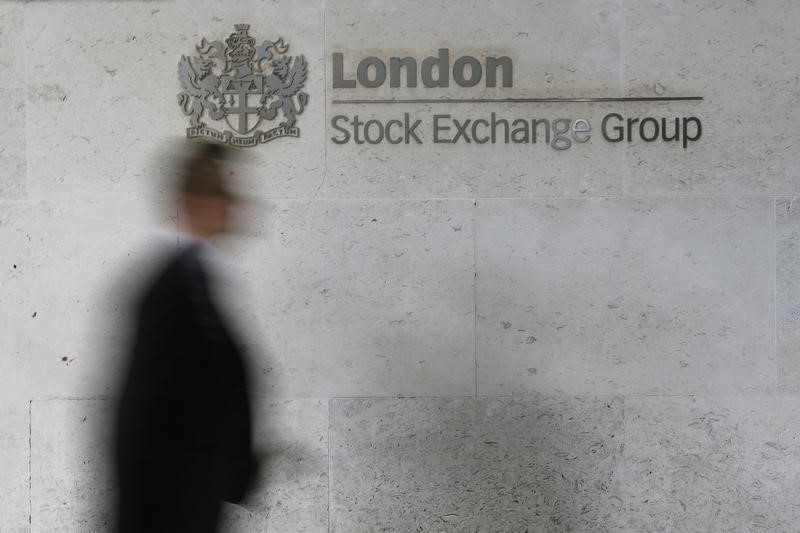By Alistair Smout
LONDON (Reuters) - Britain's top share index rose on Friday, boosted by BP (L:BP) after the oil major received a smaller fine than anticipated for the 2010 Gulf of Mexico oil spill.
A rebound in Brent crude and commodities helped to support the broader energy and mining sectors.
BP will face a maximum fine of $13.7 billion under a ruling by a U.S. federal magistrate. That was several billion less than anticipated and it pushed the stock up 5.3 percent, making it the top FTSE 100 (FTSE) riser.
"BP is outperforming its sector. The fine was smaller than expected, which has helped BP in addition to the oil price," Manoj Ladwa, head of trading at TJM Partners said.
"It draws a big line under the issues BP has had over the Gulf of Mexico incident."
The oil major added 15 points to the blue-chip FTSE 100 (FTSE), which was up 51.49 points, or 0.8 percent, to 6,550.27 at the close after gaining 1.7 percent in the previous session.
The FTSE 350 oil and gas index (FTNMX0530) rose 3.1 percent, as Brent crude oil rose more than $2 to almost $50 a barrel after the West's energy watchdog forecast the market downtrend would end.
The mining sub-index (FTNMX1770) rallied after an early dip to trade 3.1 percent higher as copper gained for a second day.
The higher price of oil put airlines under pressure, with easyJet (L:EZJ) down 2.7 percent as the index's top faller.
Financials were the biggest weight on the index however, trimming 3.4 points off the FTSE 100 after the Swiss National Bank's shock decision to end its cap on the franc on Thursday resulted in big losses for a number of brokers.
Barclays (L:BARC) fell 1.6 percent, extending losses after an industry source said the bank lost tens of millions of pounds from volatility in the Swiss franc earlier in the week.
After Thursday's market turmoil, investors are awaiting a European Central Bank policy meeting next week at which the ECB is widely expected to say it will start buying government bonds with new money.

Many interpreted the SNB's decision to scrap the Swiss franc's three-year-old cap against the euro as a sign it is anticipating just such a tide of euros.